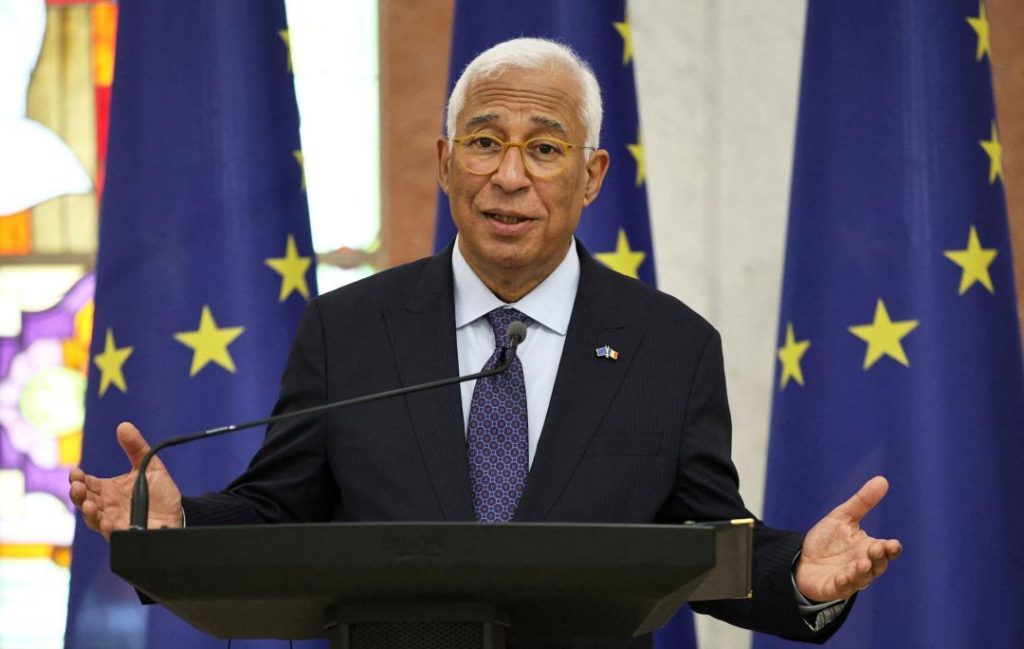
No Indications of Spain, Portugal Blackout Being a Cyberattack: EU’s Costa
A massive power outage has hit Spain and Portugal, leaving millions without electricity in the two countries. The incident has sparked concerns about the potential cause of the blackout, with some speculating that it could be a cyberattack. However, EU Council President Antonio Costa has denied any involvement of a cyberattack, stating that there are “no indications of any cyberattack at this point.”
According to Costa, grid operators in both Spain and Portugal are working to find the cause of the power outage and restore electricity supply to affected areas. Costa has also stated that he is in touch with Spanish President Pedro Sánchez and Portuguese PM Luís Montenegro to coordinate efforts to address the situation.
The power outage occurred on [date], affecting millions of people in both countries. The Spanish grid operator, Red Eléctrica de España (REE), reported that the outage was caused by a “complex” problem that has affected several regions in the country. Portugal’s grid operator, REN (Redes Energéticas Nacionais), also confirmed the outage, saying that it has affected several regions in the country.
While the cause of the power outage is still unknown, Costa’s denial of any cyberattack involvement has eased concerns about the potential security risks. Cyberattacks have become a growing concern for governments and industries around the world, with high-profile attacks on critical infrastructure and major corporations.
In recent years, there have been several high-profile cyberattacks on critical infrastructure, including a 2019 attack on a Ukrainian power grid that left hundreds of thousands of people without electricity. The attack was attributed to Russian hackers, who used malware to gain access to the grid’s control system and shut off power to several regions.
The potential for cyberattacks on critical infrastructure is a growing concern for governments and industries around the world. In 2020, the US Department of Homeland Security warned that the country’s power grid was at risk of being targeted by cyberattacks, and that the potential consequences of such an attack could be severe.
In addition to the potential security risks, cyberattacks on critical infrastructure can also have significant economic and social impacts. A 2020 report by the World Economic Forum estimated that the global economy could lose up to $3 trillion per year due to cyberattacks on critical infrastructure.
In the case of the Spain and Portugal power outage, the cause of the blackout is still unknown, and it is unclear what the potential consequences could be. However, Costa’s denial of any cyberattack involvement has eased concerns about the potential security risks.
In a statement, Costa said, “At this point, there are no indications of any cyberattack. Grid operators in both countries are working on finding the cause and restoring the electricity supply.”
Costa’s statement has been welcomed by security experts, who say that the denial of any cyberattack involvement has eased concerns about the potential security risks.
“This is a significant development in the investigation,” said [Name], a security expert at [Company]. “If the cause of the blackout is not a cyberattack, then it is likely to be a technical issue that can be addressed through normal maintenance and repair procedures.”
The Spanish and Portuguese governments have also welcomed Costa’s statement, saying that they will continue to work together to find the cause of the power outage and restore electricity supply to affected areas.
In a statement, Spanish Prime Minister Pedro Sánchez said, “We are working closely with the European Union and other international partners to find the cause of the blackout and restore electricity supply to affected areas.”
Portuguese Prime Minister Luís Montenegro also issued a statement, saying, “We are doing everything possible to restore electricity supply to affected areas as quickly as possible. We are working closely with the Spanish government and other international partners to find the cause of the blackout.”
In conclusion, the Spain and Portugal power outage has sparked concerns about the potential cause of the blackout, with some speculating that it could be a cyberattack. However, EU Council President Antonio Costa has denied any involvement of a cyberattack, stating that there are “no indications of any cyberattack at this point.” The cause of the blackout is still unknown, and it is unclear what the potential consequences could be. However, Costa’s denial of any cyberattack involvement has eased concerns about the potential security risks.
News Source:
https://x.com/eucopresident/status/1916859055546544517



